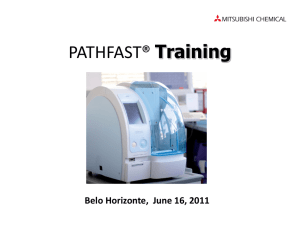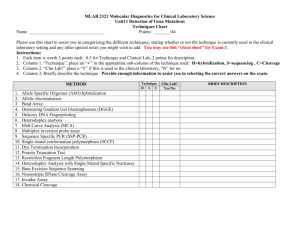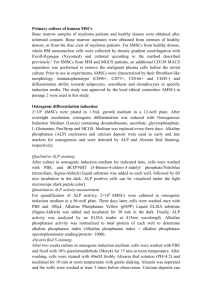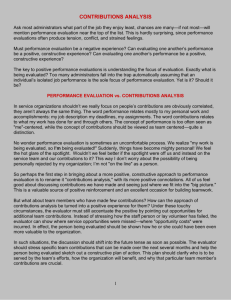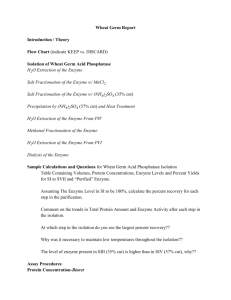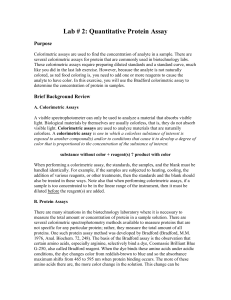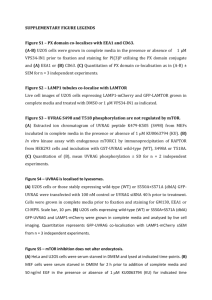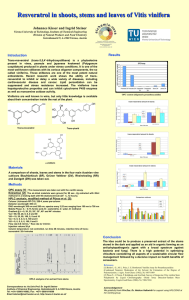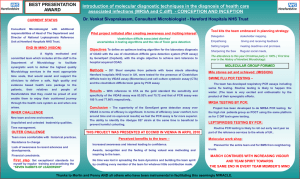Supplementary Information (doc 42K)
advertisement
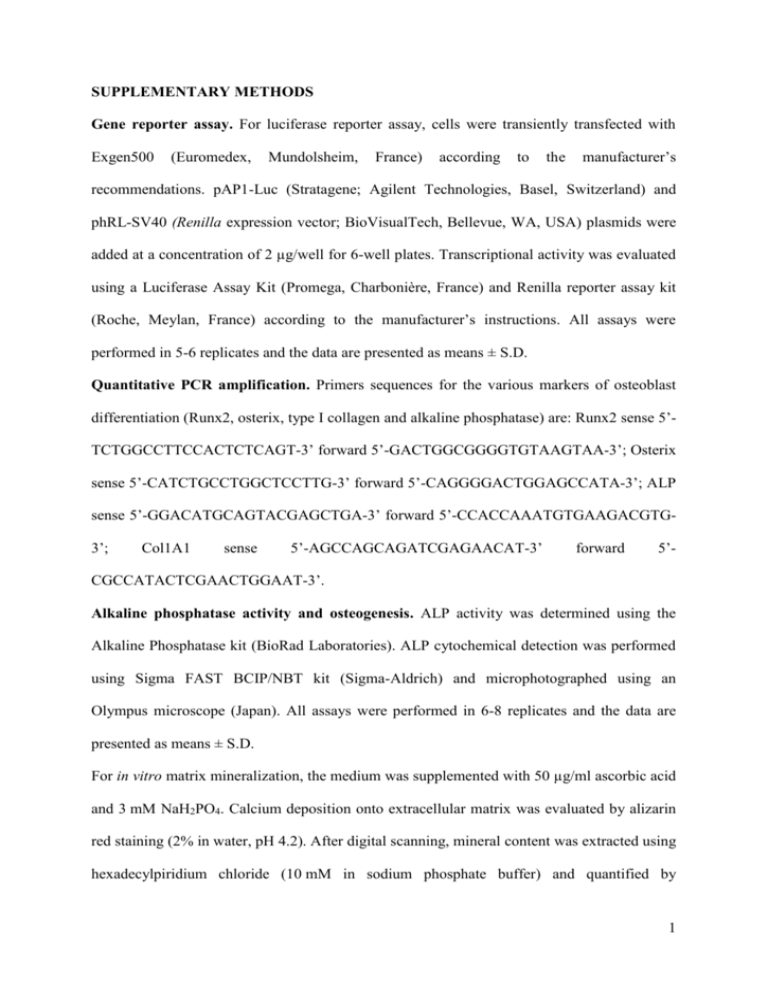
SUPPLEMENTARY METHODS Gene reporter assay. For luciferase reporter assay, cells were transiently transfected with Exgen500 (Euromedex, Mundolsheim, France) according to the manufacturer’s recommendations. pAP1-Luc (Stratagene; Agilent Technologies, Basel, Switzerland) and phRL-SV40 (Renilla expression vector; BioVisualTech, Bellevue, WA, USA) plasmids were added at a concentration of 2 µg/well for 6-well plates. Transcriptional activity was evaluated using a Luciferase Assay Kit (Promega, Charbonière, France) and Renilla reporter assay kit (Roche, Meylan, France) according to the manufacturer’s instructions. All assays were performed in 5-6 replicates and the data are presented as means ± S.D. Quantitative PCR amplification. Primers sequences for the various markers of osteoblast differentiation (Runx2, osterix, type I collagen and alkaline phosphatase) are: Runx2 sense 5’TCTGGCCTTCCACTCTCAGT-3’ forward 5’-GACTGGCGGGGTGTAAGTAA-3’; Osterix sense 5’-CATCTGCCTGGCTCCTTG-3’ forward 5’-CAGGGGACTGGAGCCATA-3’; ALP sense 5’-GGACATGCAGTACGAGCTGA-3’ forward 5’-CCACCAAATGTGAAGACGTG3’; Col1A1 sense 5’-AGCCAGCAGATCGAGAACAT-3’ forward 5’- CGCCATACTCGAACTGGAAT-3’. Alkaline phosphatase activity and osteogenesis. ALP activity was determined using the Alkaline Phosphatase kit (BioRad Laboratories). ALP cytochemical detection was performed using Sigma FAST BCIP/NBT kit (Sigma-Aldrich) and microphotographed using an Olympus microscope (Japan). All assays were performed in 6-8 replicates and the data are presented as means ± S.D. For in vitro matrix mineralization, the medium was supplemented with 50 µg/ml ascorbic acid and 3 mM NaH2PO4. Calcium deposition onto extracellular matrix was evaluated by alizarin red staining (2% in water, pH 4.2). After digital scanning, mineral content was extracted using hexadecylpiridium chloride (10 mM in sodium phosphate buffer) and quantified by 1 spectrophotometry at 562 nm. Assays were performed in 4 replicates and the data are presented as means ± S.D. SUPPLEMENTARY FIGURES LEGENDS Supplemental Data 1. MT2A overexpression modulates intracellular signaling pathways. A/ Phosphorylation status of ERK1/2-MAPKs, p38, JNK and Akt were evaluated by western blot in SaOS2 and U2OS cells overexpressing or not MT2A. Ratios were corrected for actin content. B/ The AP1-dependent transcriptional activity was evaluated in SaOS2 and U2OS cells using an AP1-cis reporting luciferase assay. Results are expressed as treated over control ratio (mean ± SEM). *: P<0.05 vs. parental cells. Supplemental Data 2. MT2A overexpression promotes osteoblastic differentiation of osteosarcoma cells. a/ Runx2, Osterix, Type I Collagen and Alkaline Phosphatase mRNA levels were evaluated by quantitative RT-PCR in SaOS2 or U2OS parental and MT2A overexpressing cells. b/ ALP activity was measured at different time points in SaOS2 and U2OS cells overexpressing or not MT2A. c/ ALP activity was evaluated by colorimetric assay. d/ Matrix mineralization was evaluated by von Kossa staining. e/ Mineral content was measured by colorimetric assay. Results are expressed as treated over control ratio (mean ± SEM). *: P<0.05 vs. parental cells. Supplemental Data 3. MT2A silencing reduces osteoblastic differentiation of osteosarcoma cells. a/ Runx2, Osterix, Type I Collagen and Alkaline Phosphatase mRNA levels were evaluated by quantitative RT-PCR in SaOS2 or U2OS parental and MT2A silenced cells. b/ ALP activity was measured at different time points in SaOS2 and U2OS cells silenced or not for MT2A. c/ ALP activity was evaluated by colorimetric assay. d/ Matrix mineralization was evaluated by von Kossa staining. e/ Mineral content was measured 2 by colorimetric assay. Results are expressed as treated over control ratio (mean ± SEM). *: P<0.05 vs. control cells. 3
